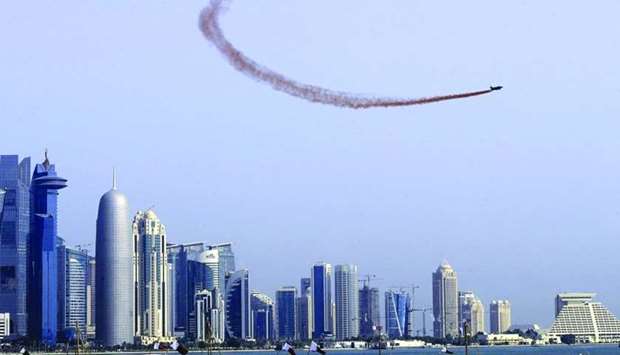Qatar’s real GDP growth will turn positive again in 2021 as energy prices stabilise at around $42 a barrel, global LNG demand picks up, and non-energy economic sentiment improves once the pandemic is controlled, World Bank said in its latest country outlook.
Over the medium term, growth will reach around 3% by 2022 from "delivery and legacy" investments for the FIFA World Cup, the World Bank said.
The fiscal deficit is expected to be -3.6% on account of “substantial” drops in fiscal receipts of hydrocarbon exports, and a fiscal stimulus to mitigate Covid-19.
“As the pandemic is controlled, global demand picks up, and energy prices normalise, the fiscal deficit is expected to regain balance and turn into surplus by 2022. Public sector balances will also be supported by the eventual introduction of a VAT,” the World Bank noted.
Like other macroeconomic indicators, it said, the current account is largely a function of energy-related commodity prices and export volumes. With the reduction in exports expected for 2020 (-6.5%), the current account will drop to a deficit of 1% of GDP in 2020.
This will turn into “surplus” over 2021-22 with global re-bound and FDI recovery (the latter driven by new LNG projects and recent improvements to the business environment).
Qatar, which has been struck hard by Covid-19, undertook a swath of measures to offset the economic effects of the pandemic, including stimulus through tax deferrals and eased credit flow to hard pressed firms and households amounting to QR75bn with guarantees to local banks of QR3bn (approximately 10% of GDP), the World Bank noted.
On the social side, measures included steps to guarantee basic salary and allowances for workers who are isolated or quarantined, whether they are entitled to sick leave or not, the Bank said.
Qatar is the world’s fifth-largest gas producer, second-largest gas exporter, and largest exporter of liquefied natural gas (LNG). The collapse in crude oil prices at the start of the pandemic reverberated through to LNG markets, especially for oil-linked LNG contracts, it said.
According to the World Bank, the recent increase in the universal minimum wage (to $275 a month) and abolition of the requirement that migrants get permission of employers to change jobs are likely to positively impact migrant worker welfare and improve labour market incentives.
The fiscal deficit is expected to be -3.6% on account of “substantial” drops in fiscal receipts of hydrocarbon exports, and a fiscal stimulus to mitigate Covid-19.
“As the pandemic is controlled, global demand picks up, and energy prices normalise, the fiscal deficit is expected to regain balance and turn into surplus by 2022. Public sector balances will also be supported by the eventual introduction of a VAT,” the World Bank noted.
Like other macroeconomic indicators, it said, the current account is largely a function of energy-related commodity prices and export volumes. With the reduction in exports expected for 2020 (-6.5%), the current account will drop to a deficit of 1% of GDP in 2020.
This will turn into “surplus” over 2021-22 with global re-bound and FDI recovery (the latter driven by new LNG projects and recent improvements to the business environment).
Qatar, which has been struck hard by Covid-19, undertook a swath of measures to offset the economic effects of the pandemic, including stimulus through tax deferrals and eased credit flow to hard pressed firms and households amounting to QR75bn with guarantees to local banks of QR3bn (approximately 10% of GDP), the World Bank noted.
On the social side, measures included steps to guarantee basic salary and allowances for workers who are isolated or quarantined, whether they are entitled to sick leave or not, the Bank said.
Qatar is the world’s fifth-largest gas producer, second-largest gas exporter, and largest exporter of liquefied natural gas (LNG). The collapse in crude oil prices at the start of the pandemic reverberated through to LNG markets, especially for oil-linked LNG contracts, it said.
According to the World Bank, the recent increase in the universal minimum wage (to $275 a month) and abolition of the requirement that migrants get permission of employers to change jobs are likely to positively impact migrant worker welfare and improve labour market incentives.




